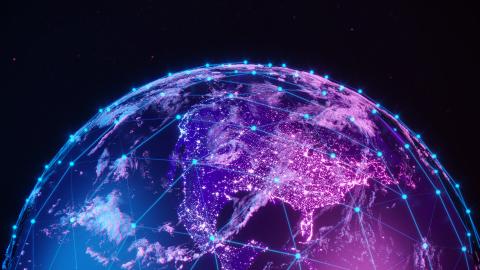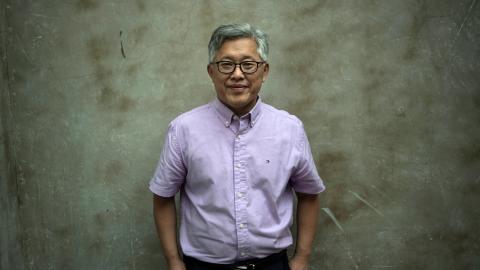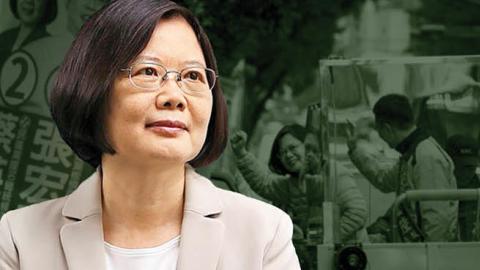Last year was tough for Xi Jinping and the Chinese Communist party. Between their glaring inability to mollify protesters and restore order in Hong Kong, an economic slowdown, and the online publication of highly sensitive, utterly horrifying official documents detailing their brutal crackdown on religious minorities, 2019 knocked much of the sheen off the vaunted Chinese model. And the past couple of weeks indicate that 2020 will be no different.
Incumbent Tsai Ing-wen’s lopsided drubbing of challenger Han Kuo-yu in Saturday’s Taiwanese presidential election had been widely expected in recent weeks, but it was not always such a sure thing. At this time last year, Ms. Tsai had resigned as the chairperson of her party after catastrophic electoral losses, and her political future looked bleak.
Riding to the rescue was Chairman Xi, who gave a speech demanding that Taiwan accept the “one country, two systems” framework that governs China’s relations with Hong Kong and warning that “we make no promise to abandon the use of force, and retain the option of taking all necessary measures” to absorb Taiwan into China. For Tsai, whose Democratic Progressive party is skeptical of reunification with China, rejecting Xi’s demands was a layup. China’s subsequent attempt to undermine civil liberties in Hong Kong, and the ensuing protests and violence, made Tsai look prescient and mightily contributed to her reelection, which was in doubt as late as August. Bringing Taiwan under Chinese control, a longstanding goal of the CCP, now looks highly unlikely absent an invasion.
Though Tsai’s victory is a major setback that hurts the CCP’s prestige, its consequences are unlikely to reverberate too far across the region. Hong Kong’s protests and the improved fortunes of China skeptics in Taiwan make China look less effective, but many of China’s neighbors are themselves de facto or de jure one-party states, and their rulers are not the sort to cheer on mass protest movements that demand freedom.
China’s assertive attitude toward territorial disputes is, however, provoking a regional backlash. Its claims in the South China Sea were ruled invalid by a court at The Hague in 2016, but that hasn’t stopped Xi from creating and militarizing artificial islands to solidify control of the disputed territory, which is vitally important to international trade, and from unleashing swarms of quasi-civilian vessels to harass other countries’ ships. Amazingly, the Chinese have become so aggressive that they have provoked Indonesia, which does not even claim islands in the South China Sea. President Joko Widodo found their violations so significant that he stepped away from responding to massive floods in Jakarta to visit Indonesian holdings near the disputed waters last week.
Infuriating the country with the largest economy, and the largest military, in Southeast Asia is a mistake for China, and could hardly come at a worse time. This year, the ASEAN regional group is chaired by Vietnam, which has a prickly relationship with China whose history stretches back to before the 1979 Sino–Vietnam War. It is also the year that ASEAN and China are expected to finish most of their negotiations on a new code of conduct regarding the South China Sea. Vietnam’s chairmanship already made the outlook for ASEAN–China relations this year bleak, and alienating Indonesia will further impede China’s diplomatic efforts on an issue of vital importance.
China’s prospects in the tech war with the United States are looking grim as well. Although its tech companies are making substantial inroads in the developing world, they have struggled mightily in Europe and the U.S. In February, Chinese tech executives were cocky, mocking America’s attempts, at the MWC Barcelona trade show, to warn European regulators about the threat posed by Chinese companies such as Huawei.
Despite the setback, U.S. diplomats patiently worked to persuade their European counterparts, and their efforts have paid off: In December, the EU obliquely encouraged its member states to think twice before ordering Chinese equipment for critical infrastructure, and European companies such as Deutsche Telekom AG are taking notice. In his new-year message to employees, Huwaei’s chairman, Eric Xu, said that, for 2020, “survival is our first priority.” This represents a significant retreat from the company’s ambitious goals for 2019.
Western observers sometimes look at China’s accomplishments and envy aspects of their political system, which is supposedly resolute at following long-term plans yet amazingly nimble at adjusting to unanticipated events, while democracies abandon long-term plans after each election and yet are also ponderous and slow to change course. Besides being logically incoherent, this complaint is demonstrably inaccurate. Though the CCP’s aggressive approach to regional politics, the South China Sea, and the global tech race has provoked backlash and led to setbacks for years, it is likely to continue for years to come. Like the Bourbons, China’s leaders forget nothing — and learn nothing, too.
Read in National Review














